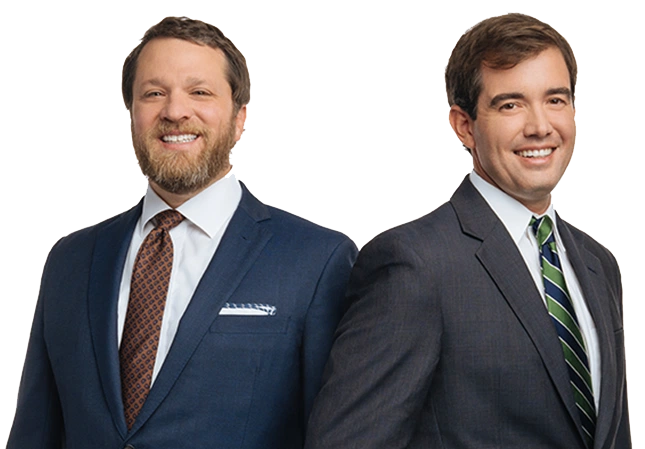Why hire a Greenville criminal defense attorney?
Many people have never hired a lawyer before and may not understand the benefits a criminal defense attorney brings to the table. After all, why go through the hassle and expense of hiring an attorney if you can handle everything on your own? While this is an understandable question, the reality is that handling a legal case is not like engaging in some do-it-yourself projects around the house.
Criminal legal matters are serious and one wrong move can result in years in prison, time away from your loved ones, loss of employment, and can ruin your life. When something as serious as your freedom and your future are on the line, you need to trust that the person handling your case knows what he or she is doing. Handling a case yourself means that, rather than having an experienced professional helping to control your defense, you have instead designated authority to a novice, hoping things turn out well on their own.
Experienced criminal defense lawyers understand the law, courtroom rules and procedures, how to talk to a judge, how to present a case to a jury, and how to negotiate deals with prosecutors. These are skills that ordinary people without a legal background and experience are not likely to have, and they are skills that are necessary when you are facing serious criminal charges.
What’s wrong with a public defender?
Absolutely nothing. Public defenders are usually skilled and dedicated criminal defense lawyers that work tirelessly on behalf of their clients. There is nothing wrong with allowing a public defender to handle your case. That being said, you should understand that public defenders, as a general rule, have very high case loads. This is a function of an overburdened court system and the financial and political reality that local and State governments are unlikely to fund the public defender’s office as generously as they fund the prosecutor’s office. The problem from an individual client’s perspective is that an overextended attorney juggling dozens if not hundreds of cases may have a hard time focusing on any one matter. Given how much is at stake in your case, you do not want to be one of hundreds of cases on your lawyer’s mind; you want a lawyer who is focused on your case, and can devote the time your case needs.
What factors to consider when hiring a criminal defense lawyer?
You may have decided to hire a Greenville, South Carolina criminal defense attorney but don’t know where to start. This is a common problem and can be overwhelming to some people. The first thing you should do is engage in a little research. Ask around, talk to family and friends, search the internet, read websites and articles, and gather as much information as possible. Next, make a few calls and set up times to either meet a criminal defense attorney in person or talk to him on the phone. Once you have a chance to talk one-on-one, be sure and ask questions about experience.
- How long has the person been a criminal defense attorney?
- How many cases have they handled? How long have they practiced criminal law?
- How many cases have they tried?
- How many trials have they had in front of a jury?
Ask questions about money and be sure that you are comfortable with the answers. Also, get a sense of how you interact with the lawyer on a personal level. Are you comfortable talking with him or her? If not, then your attorney-client relationship will likely only get worse. You will need to trust this person, and if you do not feel you can trust him or her, then it is best to keep looking.
What is a plea agreement?
A plea agreement is a way to resolve a criminal case without going to trial. Though most TV shows and movies focus on dramatic courtroom moments – witnesses cracking under pressure or attorneys screaming at one another – the reality is that the vast majority of criminal cases end with a plea agreement. Plea agreements can be useful and fair for both the solicitor and the defendant, which helps explain their popularity. Judges like plea deals because they can reduce the already heavy burden on the justice system, avoiding lengthy and expensive trials. Prosecutors like plea deals because they avoid taking a case to trial, a risky proposition that can result in acquittal. Plea deals help ensure prosecutors get some kind of conviction, even if it is for a lesser offense. From the defense’s perspective, plea deals are similarly useful, depending on the particular facts of the case. Plea deals avoid a trial where it can be very difficult to predict an outcome. Even very strong defense cases can fail to convince a jury, resulting in a stiff sentence that could have been negotiated lower as part of a plea agreement.
Plea agreements are not best in every case, and attorney should be ready and able to take your fight all the way to a jury of your peers. That being said, if the prosecution has a particularly strong case and acquittal seems unlikely, having a criminal defense attorney that understands how to negotiate with prosecutors is a critical skill necessary to secure a favorable plea agreement.
What is the difference between a felony and a misdemeanor?
Though you may have heard the terms bandied about on late night police dramas, few people understand the actual distinction between a felony and a misdemeanor. Misdemeanors generally refer to less serious criminal matters that are punished with much shorter potential jail sentences. In fact, the Federal system considers any offense punishable by one year in prison or less to be a misdemeanor. Felonies, on the other hand, are more serious criminal matters and are punished accordingly. In South Carolina, the Code of Laws specifies which crimes constitute felonies and which crimes are misdemeanors. Although there is a definite difference in how the two crimes are treated in terms of the potential for time spent behind bars, both are serious and can have a lasting negative impact on your life. As a result, you should seek out a skilled criminal defense attorney who can fight on your behalf, regardless of whether the charge is a felony or a misdemeanor.
Contact us to discuss your case and the legal rights available to you.
If you’ve been arrested, what should you do first?
The absolute first thing you should do if you’ve been arrested is keep quiet. You have a constitutional right to remain silent and you should exercise that right. Obviously, be polite, and provide any personal information requested by the police, such as your name and driver’s license, but, beyond that, you have no obligation to speak with police officers or investigators about your charges. Remember that from the moment you are stopped by a patrol car, you are likely to be videotaped.If you are polite but choose to keep quiet, then you avoid the risk that you say too much or are tricked into saying the wrong thing. When you speak, your words can be twisted and later used against you.
Besides remaining silent, you should get in touch with an experienced criminal defense attorney as soon as possible. Every minute counts, especially in the beginning stages of a criminal case. The sooner you reach out to skilled criminal defense attorneys, the sooner your lawyer can begin working on securing your freedom.
Can prior convictions be used against you?
If you were previously convicted of a criminal offense, could that come back to haunt you in a future criminal matter? The answer, unfortunately, is that sometimes it can. The exact nature of the prior criminal conviction, whether it is relevant to the current case, how long ago it happened, etc., will dictate whether it can be used against you down the road. Prior convictions can impact various aspects of your criminal case, from the bond hearing all the way to a final sentencing.
What is a bond and how does it work?
A bond, or bail, is money or property that has been put up as a deposit in an attempt to ensure that a person accused of a crime returns to court when he or she is supposed to. As long as the accused returns to court as required, the bond will be returned at the end of the criminal case. Whether the person is ultimately found guilty doesn’t matter, so long as the defendant appears the money will be returned. If the person fails to show up when required, then he or she will have violated the conditions of bond, and the money or property put up as a deposition may be forfeited.
Generally, a bond may not be not required in minor criminal cases, like misdemeanors and traffic offenses. In these types of cases, defendants are typically issued a citation and are released on their own recognizance, meaning that they need not put up money or property if they promise to appear. For felony criminal charges, judges may not be satisfied with a simple promise that the person will return for court and may use bond to incentivize the person not to flee. A qualified criminal defense attorney will know how to negotiate the bond amount, in order to hopefully secure a bond amount that you can afford while at the same time satisfying the court that you are not likely to flee.
What should I do in my case?
Ultimately, when confronted with allegations of criminal misbehavior, every citizen is protected by our State and Federal Constitutions. These documents, alongside our system of laws and due process, ensure that, when properly functioning, each and every person is protected from unjust and unlawful conviction. To ensure that this system and these laws work for you and that you receive the benefit of these powerful protections, you would be best served by seeking the advice and counsel of a competent and trustworthy criminal defense attorney. You can only stand to lose by failing to find someone to fight for your rights and on your behalf and prevent you from obtaining a criminal record. Do the research and talk to a lawyer. The successful resolution of your case may depend on it.
It is important to hire a criminal defense attorney who will aggressively pursue your rights under the law and is willing to go to trial on your behalf. David R. Price, Jr., P.A., can help you navigate the court process and will work hard to help you achieve the most positive outcome so that you can move on with your life.








